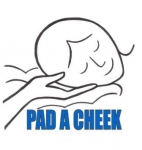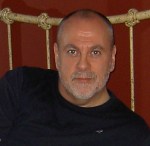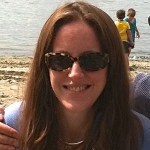Opinion please - questions
Opinion please - questions
I got some numbers (from my second PSG), and some questions for the experts that I know are out there:
First of all what is a micro arousal? According to what I'm reading I had an index of 112 of these per hour without treatment. Looks like they didn't totally get rid of them, says that the average over the night went down to an average of 7 over the whole night with treatment.
Any bright ideas as to how to get stage 4 sleep? Without treatment I had no REM or stage 4, with treatment I had 22 minutes of REM and no stage 4.
How about improving sleep efficiency? I went from 40% without treatment to 58% with it.
First of all what is a micro arousal? According to what I'm reading I had an index of 112 of these per hour without treatment. Looks like they didn't totally get rid of them, says that the average over the night went down to an average of 7 over the whole night with treatment.
Any bright ideas as to how to get stage 4 sleep? Without treatment I had no REM or stage 4, with treatment I had 22 minutes of REM and no stage 4.
How about improving sleep efficiency? I went from 40% without treatment to 58% with it.
- Pad A Cheek
- Posts: 836
- Joined: Sat Oct 22, 2005 3:40 pm
- Location: Virginia, In the shadow of the Blue Ridge Mountains
- Contact:
Bump
Bump.
Karen
Karen
_________________
| Machine: DreamStation Auto CPAP Machine |
| Additional Comments: This CPAP stuff at night makes the days so much more productive |
And I think to myself...... What a Wonderful World
Many people have trouble getting to stage 4 sleep, unfortunately, especially as they get older. Are there any other health issues you're experiencing (like achey joints, bad back, etc)? Any other medications that you're taking?
As for your sleep efficiency, it's purely a measure of how long you laid in bed to how long you actually slept. In order to improve that number, what you're really after is being able to fall asleep quickly and stay asleep. My sleep efficiency in the lab was abysmal, somewhere around 20%, because I had a lot of trouble getting past stage 1. Do you lay awake tossing and turning much at home?
Wish I could be more helpful.
As for your sleep efficiency, it's purely a measure of how long you laid in bed to how long you actually slept. In order to improve that number, what you're really after is being able to fall asleep quickly and stay asleep. My sleep efficiency in the lab was abysmal, somewhere around 20%, because I had a lot of trouble getting past stage 1. Do you lay awake tossing and turning much at home?
Wish I could be more helpful.
I'm a programmer Jim, not a doctor!
Don't know about being an "expert", but just passing on my thoughts.....
I don't think it's too surprising that we could get into much stage 3 and 4 sleep during our sleep studies. My study also showed no stage 3 or 4 either.
I wonder if I'm getting much of those stages (3 & 4) even now......it SEEMS as though I'm spending so much time in REM (lots and lots of dreams....always have had).
I guess as long as I'm feeling rested and like I slept well, that's what counts.
Best wishes,
Den
I don't think it's too surprising that we could get into much stage 3 and 4 sleep during our sleep studies. My study also showed no stage 3 or 4 either.
I wonder if I'm getting much of those stages (3 & 4) even now......it SEEMS as though I'm spending so much time in REM (lots and lots of dreams....always have had).
I guess as long as I'm feeling rested and like I slept well, that's what counts.
Best wishes,
Den
(5) REMstar Autos w/C-Flex & (6) REMstar Pro 2 CPAPs w/C-Flex - Pressure Setting = 14 cm.
"Passover" Humidification - ResMed Ultra Mirage FF - Encore Pro w/Card Reader & MyEncore software - Chiroflow pillow
User since 05/14/05
"Passover" Humidification - ResMed Ultra Mirage FF - Encore Pro w/Card Reader & MyEncore software - Chiroflow pillow
User since 05/14/05
- WillSucceed
- Posts: 1031
- Joined: Sun Nov 07, 2004 7:52 am
- Location: Toronto, Ontario
Now there is part of the problem... Any SSRI (selective Seretonin reuptake inhibitor --some folk call it a Seretonin selective reuptake inhibitor) like Prozac can have an impact upon sleep. I've got some articles that a colleague of mine gave me (he is a hospital-based pharamacist specializing in psychiatric meds) regarding SSRI treatment and sleep. My colleague suggested that there is SOME evidence that SOME of the newer anti-depressants, like Ciprolex, seem to have LESS of an impact upon sleep architecture. Prozac is NOT a new medication, but is still given out like candy as it is now inexpensive due to being available as a generic.just birth control and prozac.
I'll look for the articles and, if I can find them, will offer you the citations. You could also approach your pharamacist for some help. Alternatively, call your local hospital and ask to speak to the in-patient pharmacy, then ask to speak to the pharmacist who takes care of meds for the psych. unit in the hospital. This person should be able to give you the best answers regarding anti-depressant meds and sleep.
As blarg noted, as we age, time spent in slow wave sleep decreases; this is pretty normal stuff. The good news for you is that you went from no REM sleep to 22 minutes of it. Hopefully, that will improve as you continue with treatment. My first sleep study, a little over 2 years ago (at age 47), showed zero stage 4 sleep and only about 2 minutes of REM -I felt like a bag of crap and had the memory of a sieve. While I am feeling significantly better, both in terms of wakefullness and memory, I'm still not where I want to be. I'm hoping that this will either continue to improve or, at least not get worse.
Buy a new hat, drink a good wine, treat yourself, and someone you love, to a new bauble, live while you are alive... you never know when the mid-town bus is going to have your name written across its front bumper!
The other thing to consider is that some of your depressive problems could be due to poor sleep--mine were. I took prozac for 2.5 years for extreme irritability. Once my sleep started to get better, I weaned off the prozac; I've been completely off it since about Thanksgiving and don't miss it at all. Obviously, I'm no doctor, and everyone has different degrees of depression, but I just wanted to point out that there is the *chance* that better sleep will reduce your need for anti-depressants.
Good luck!
Good luck!
_________________
| Machine: ResMed AirSense™ 10 AutoSet™ CPAP Machine with HumidAir™ Heated Humidifier |
| Mask: AirFit™ P10 For Her Nasal Pillow CPAP Mask with Headgear |
| Additional Comments: Pressure set to min: 6, max: 12 |
--Sarah
-
snoozeandlose
- Posts: 107
- Joined: Sun Jun 19, 2005 4:52 pm
- Location: The Vast cornfields of northwest Ohio
I'm another one who gets no stage 4 sleep, plenty of REM. I found out on study number 3 that I have alpha wave intrusion which is preventing me from getting into stage 4. I am trying Xyrem, but also take Lexapro, Wellbrutin and Neurontin. Sound like a real druggie. It's been four weeks of adjusting the Xyrem dosage and the doc just added a small dose of Ambien. This seems to be improving my sleep, but I still feel exhausted. Good news is I am not as sleepy during the day. Hope to get off some of the antidepressants, too.
_________________
| Mask: FlexiFit HC432 Full Face CPAP Mask with Headgear |
| Additional Comments: Pressure 14.5, compliant since 2004 |
color=#000080][/color]"This is the day the Lord has made. Let us be glad and rejoice in it."
- curtcurt46
- Posts: 262
- Joined: Wed Sep 27, 2006 12:35 pm
- Location: Retired US Army
I have some questions, please.
Why are you know having a second PSG?
How long have you been on Bipap/Cpap? Are you using your machine for all sleep periods to include naps?
Do you take naps? How often?
How do you sleep with the Bipap Auto and what are the current settings?
It looks like you monitor your performance, if so what is you avg AHI, AI, and HI.
Many, many drugs we take whether labelled or not can cause sleep disturbances. Both that you are taking might cause problems. Also, many food supplements cause sleep disturbances.
I don't have any answers or thoughts, at this time, but with some additional information maybe some comments will be forthcoming from the forum that can help you in your quest.
Why are you know having a second PSG?
How long have you been on Bipap/Cpap? Are you using your machine for all sleep periods to include naps?
Do you take naps? How often?
How do you sleep with the Bipap Auto and what are the current settings?
It looks like you monitor your performance, if so what is you avg AHI, AI, and HI.
Many, many drugs we take whether labelled or not can cause sleep disturbances. Both that you are taking might cause problems. Also, many food supplements cause sleep disturbances.
I don't have any answers or thoughts, at this time, but with some additional information maybe some comments will be forthcoming from the forum that can help you in your quest.
Curtis
curtcurt46
curtcurt46
- StillAnotherGuest
- Posts: 1005
- Joined: Sun Sep 24, 2006 6:43 pm
On Various Issues
While it may be tempting to attribute sleep disturbance to SSRI administration, there are significant dangers inherent in doing so. You really have to know what the sleep architecture was prior to the initiation of anti-depressant medications before you can blame ADMs for sleep disorders. The incidence of insomnia in untreated depression is somewhere from 50-90% depending on who you talk to. For the sake of comparison, the incidence of insomnia attributed to SSRIs (depending on which one you pick) tends to be in the 20% range. The point is that the likelihood of insomnia being co-existent with depression is stronger than it is being as a result of ADM administration alone.
Understanding this co-morbidity makes understanding the pharmaceutical company-supplied brochures a little bit easier to explain. While the incidence of insomnia is often presented as being present in a comparatively large percentage of patients, the percentage of patients experiencing insomnia receiving placebo is also noted to be relative significant. Looking at Prozac and Effexor:
On the other hand, I don't think you have to dig very far to discover that ADMs can significantly affect sleep architecture (and this includes sleep fragmentation as well as insomnia, which are 2 different things). But you have to be real careful about how much you rob Peter to pay Paul.
Also, don't forget that sudden or arbitrary withdrawal of ADM can result in significant issues, including the SSRI Withdrawal Syndrome. So don't think that you can self-titrate ADMs using Antidepressant 1.6 and MySSRI (but if you do, just make sure you load up the software first).
The Following Is A Paid Political Announcement
One more thing. I'm really looking forward to the day when unattended portable screening for OSA becomes commonplace, and patients with issues like these wallow aimlessly around with undiagnosed co-morbidities. Without an exceptionally good screening tool and qualified people to administer it (which in practice, absolutely won't happen) the time from initially seeking help for sleep-related issues will go from the supposed "weeks" (because of a perceived lack of ability of the present system to deal with the scope of the problem of OSA, and sleep issues are not just OSA) to "years", or "never". And if these patients pursue problems to to their successful solution, they will need facility-based PSG anyway. So before anybody starts to think that the article about "Diagnosis and Initial Management of Obstructive Sleep Apnea without Polysomnography" is going to solve the world's sleep problems, guess again. BTW, in order to find 81 patients for their study, they had to look at 2216 patients referred to their sleep center (not 2216 people on the street, 2216 people referred to their center, which means they all had a sleep issue) of which 2135 were ineligible for a myriad of reasons.
Heck, if they're gonna cherry-pick like that, even I could have a success rate that good.
That "Sleep Strip" looks better every day, don't it?
SAG
Understanding this co-morbidity makes understanding the pharmaceutical company-supplied brochures a little bit easier to explain. While the incidence of insomnia is often presented as being present in a comparatively large percentage of patients, the percentage of patients experiencing insomnia receiving placebo is also noted to be relative significant. Looking at Prozac and Effexor:
Prozac
Anxiety and Insomnia — In US placebo-controlled clinical trials for major depressive disorder, 12% to 16% of patients treated with Prozac and 7% to 9% of patients treated with placebo reported anxiety, nervousness, or insomnia.
In US placebo-controlled clinical trials for OCD, insomnia was reported in 28% of patients treated with Prozac and in 22% of patients treated with placebo. Anxiety was reported in 14% of patients treated with Prozac and in 7% of patients treated with placebo.
In US placebo-controlled clinical trials for bulimia nervosa, insomnia was reported in 33% of patients treated with Prozac 60 mg, and 13% of patients treated with placebo. Anxiety and nervousness were reported, respectively, in 15% and 11% of patients treated with Prozac 60 mg and in 9% and 5% of patients treated with placebo.
Now, I don't know if their point was to say, "See, you got insomnia anyway" and they were just trying to do some damage control, or the incidence of insomnia-related ADM adminstration is significant, or perhaps, better yet, one should have a real good idea of sleep status prior to the initiation ADM therapy. Which, if you're here at this site, you have a concurrent issue that really complicates the mix and at this point really have no idea which entity is doing what.Effexor
On the other hand, I don't think you have to dig very far to discover that ADMs can significantly affect sleep architecture (and this includes sleep fragmentation as well as insomnia, which are 2 different things). But you have to be real careful about how much you rob Peter to pay Paul.
Also, don't forget that sudden or arbitrary withdrawal of ADM can result in significant issues, including the SSRI Withdrawal Syndrome. So don't think that you can self-titrate ADMs using Antidepressant 1.6 and MySSRI (but if you do, just make sure you load up the software first).
The Following Is A Paid Political Announcement
One more thing. I'm really looking forward to the day when unattended portable screening for OSA becomes commonplace, and patients with issues like these wallow aimlessly around with undiagnosed co-morbidities. Without an exceptionally good screening tool and qualified people to administer it (which in practice, absolutely won't happen) the time from initially seeking help for sleep-related issues will go from the supposed "weeks" (because of a perceived lack of ability of the present system to deal with the scope of the problem of OSA, and sleep issues are not just OSA) to "years", or "never". And if these patients pursue problems to to their successful solution, they will need facility-based PSG anyway. So before anybody starts to think that the article about "Diagnosis and Initial Management of Obstructive Sleep Apnea without Polysomnography" is going to solve the world's sleep problems, guess again. BTW, in order to find 81 patients for their study, they had to look at 2216 patients referred to their sleep center (not 2216 people on the street, 2216 people referred to their center, which means they all had a sleep issue) of which 2135 were ineligible for a myriad of reasons.
Heck, if they're gonna cherry-pick like that, even I could have a success rate that good.
That "Sleep Strip" looks better every day, don't it?
SAG

Aromatherapy may help CPAP compliance. Lavender, Mandarin, Chamomile, and Sweet Marjoram aid in relaxation and sleep. Nature's Gift has these and a blend of all four called SleepEase.
ssri
Thanks SAG, for a very impressive posting on the SSRIs on the effect on panic and SAD etc.
If I am reading the table correctly it is staggering and frightening are of concern.
Although I took prizac for many years, eventuallt camt th ths conclusion it had lost its effectiveness in dealing with my uncontrollable racing thoughts.
I do not think I have or had depression, but think it helped greatly in improving my concentration and abily to focus better.
This eventually returned and I see no difference on or off the prozac.
It may just be that I have and have always had an attention deficit problem.
gotta go- wife acting neglected.
If I am reading the table correctly it is staggering and frightening are of concern.
Although I took prizac for many years, eventuallt camt th ths conclusion it had lost its effectiveness in dealing with my uncontrollable racing thoughts.
I do not think I have or had depression, but think it helped greatly in improving my concentration and abily to focus better.
This eventually returned and I see no difference on or off the prozac.
It may just be that I have and have always had an attention deficit problem.
gotta go- wife acting neglected.
- WillSucceed
- Posts: 1031
- Joined: Sun Nov 07, 2004 7:52 am
- Location: Toronto, Ontario
Hey StillAnotherGuest:
Interesting commentary but, no one was talking about insomnia. The discussion is about SSRI impact upon sleep architecture relative to stage 4 sleep.
I'm gonna' dig out the data that my pharmacist friend gave me regarding sleep architecture so that I can offer it to you folks rather than just relying on my OSA-impacted memory!
Interesting discussion overall!
Interesting commentary but, no one was talking about insomnia. The discussion is about SSRI impact upon sleep architecture relative to stage 4 sleep.
I'm gonna' dig out the data that my pharmacist friend gave me regarding sleep architecture so that I can offer it to you folks rather than just relying on my OSA-impacted memory!
Interesting discussion overall!
Buy a new hat, drink a good wine, treat yourself, and someone you love, to a new bauble, live while you are alive... you never know when the mid-town bus is going to have your name written across its front bumper!
- StillAnotherGuest
- Posts: 1005
- Joined: Sun Sep 24, 2006 6:43 pm
But We Are!
On the contrary, Will, in cflame1's opening post, one of the questions wasWillSucceed wrote:Interesting commentary but, no one was talking about insomnia.
While the definition of insomnia doesn't hinge on one or two sleep studies (it's usually something general like "difficulty initiating or maintaining sleep or experiencing nonrestorative sleep that results in clinically significant distress or impairment in functioning that lasts more than a month"), persistent sleep efficiencies <85% raise strong suspicions about the ability to achieve and maintain sleep, so putting those numbers into perspective, insomnia, whether it's primary or comorbid, has to be considered a core issue here. Even if those efficiencies were somewhat tainted by asthma difficulties (as was previously noted), that might explain some of it, but you can't dismiss all of it. Especially in light of cflame1's other comments:cflame1 wrote:How about improving sleep efficiency? I went from 40% without treatment to 58% with it.
Certainly during that period of time, whether you want to call it comorbid insomnia (secondary to asthma, CPAP intolerance or side effects of fluoxetine) or primary insomnia, by pretty much any criteria, that's insomnia. If things have turned around 180 degrees, then fine. If not, there's more work to be done. Regardless, one should be acutely aware of all the factors that go into making sleep restorative. If your Total Sleep Time is only 50% of normal, it's not gonna make a heckuva lotta difference if your delta waves are 75 microvolts high or not.cflame1 wrote:I've been trying to adjust to this stupid machine since the end of March (post was from May 25). Haven't had a full night's sleep, but maybe once. Lately it's been back to how it was before the machine. I've got 348.8 hours on it... only 34 times with more than 4 hour stretches...it's hard when I don't sleep well.
BTW, in this case, I believe "micro-arousals" are simply referring to plain ol' "arousals", a break in sleep continuity, usually to an alpha pattern, lasting 3 seconds or more, and often resulting in a stage change. Some people call arousals of < 3 seconds "micro-arousals", but I think these guys are just trying to dress it up. If you really want to sound slick, refer to them as "cortical arousals." Or maybe "cortical micro-arousals."
SAG

Aromatherapy may help CPAP compliance. Lavender, Mandarin, Chamomile, and Sweet Marjoram aid in relaxation and sleep. Nature's Gift has these and a blend of all four called SleepEase.
For curtcurt
Why did I have a second study?
The first study was ordered by my GP, who didn't know anything about OSA at the time who sent me to an uncertified lab who, when I finally got a copy of the report for the study admitted that they titration that I received was an approximation as I didn't really sleep that night (was having an asthma attack). Add to that an RT that didn't want to listen, didn't want to suggest anything that I could have gotten the GP to write as a script.
How long have I been on XPAP??
I started this journey just after Easter 2006. Spent a couple of months on straight CPAP, then went to APAP, and am now on Bipap Auto.
I nap with it, when I remember to nap on the weekends... I don't nap during the week generally.
Other than when it's that time of the month I sleep pretty well with it. If the pressure's not right, like it gets when I'm PMS'ing then I wake up every couple of hours (more or less).
Current settings 14/21
I'll pull some current numbers and post them in a bit.
Why did I have a second study?
The first study was ordered by my GP, who didn't know anything about OSA at the time who sent me to an uncertified lab who, when I finally got a copy of the report for the study admitted that they titration that I received was an approximation as I didn't really sleep that night (was having an asthma attack). Add to that an RT that didn't want to listen, didn't want to suggest anything that I could have gotten the GP to write as a script.
How long have I been on XPAP??
I started this journey just after Easter 2006. Spent a couple of months on straight CPAP, then went to APAP, and am now on Bipap Auto.
I nap with it, when I remember to nap on the weekends... I don't nap during the week generally.
Other than when it's that time of the month I sleep pretty well with it. If the pressure's not right, like it gets when I'm PMS'ing then I wake up every couple of hours (more or less).
Current settings 14/21
I'll pull some current numbers and post them in a bit.
















